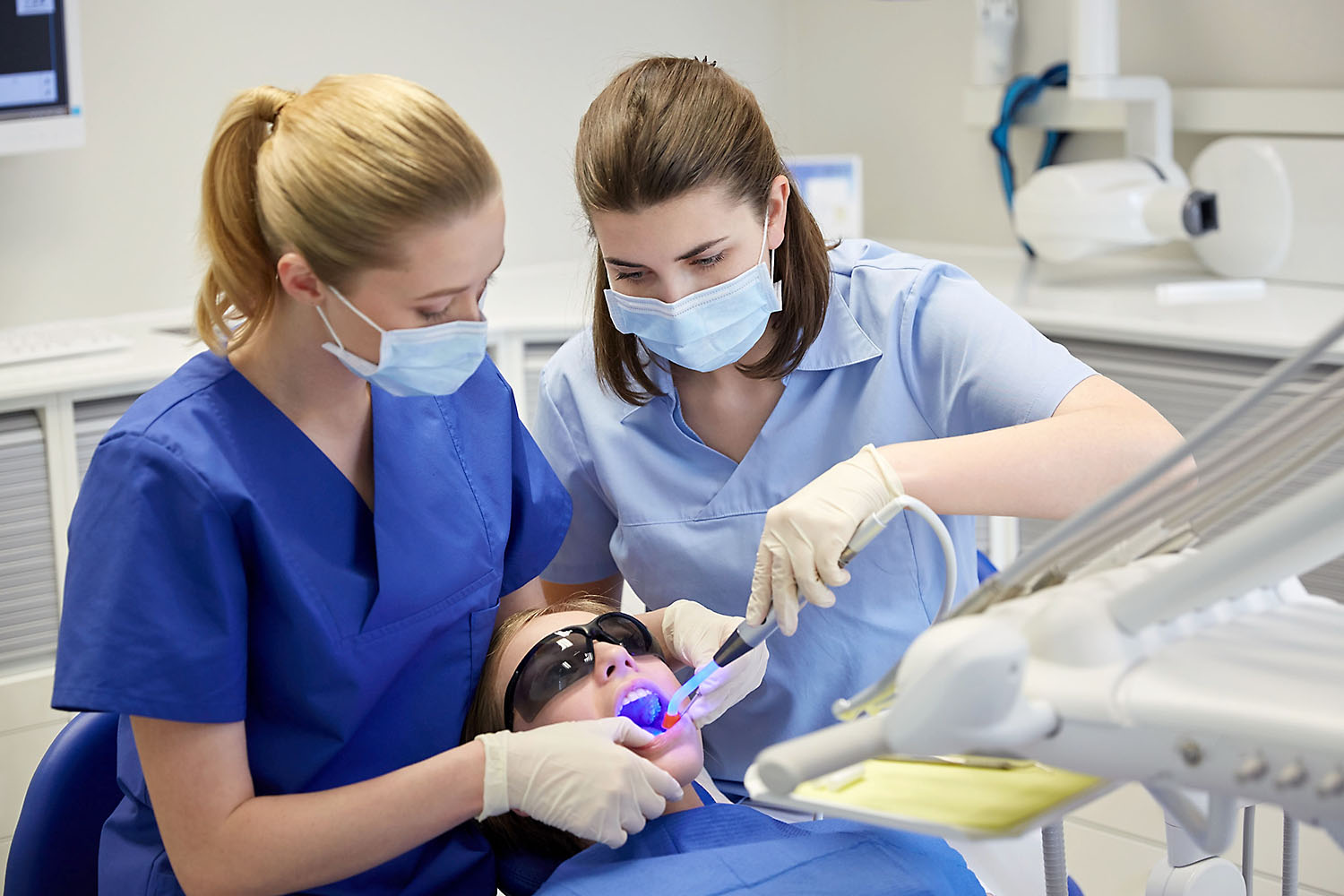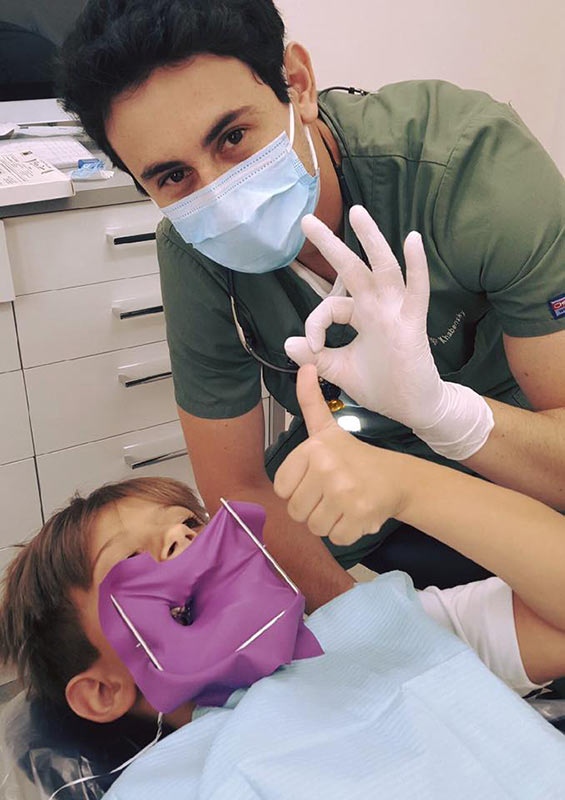Discover the Top Dentist Eugene Oregon Residents Count On for Exceptional Care
Discover the Top Dentist Eugene Oregon Residents Count On for Exceptional Care
Blog Article
A Guide to Typical Oral Conditions That Require a Dental practitioner's Care
Toothaches, for example, can be symptomatic of extreme problems such as cavities, cracked teeth, or abscesses, each calling for details interventions like fillings or origin canals. Impacted wisdom teeth and jaw conditions can introduce substantial discomfort and problems.
Toothaches
Toothaches are a common oral condition that can vary from mild pain to extreme pain, often suggesting an underlying problem that requires expert interest. This discomfort can come from a range of resources, including tooth decays, broken or fractured teeth, and oral abscesses. Each of these problems presents substantial threats if left without treatment, potentially causing extra serious issues.
Dental cavities, also known as cavities, are caused by the accumulation of plaque that erodes tooth enamel, leading to openings or pits in the influenced teeth. Abscesses are painful infections at the root of a tooth or in between the gum tissue and a tooth, usually resulting from serious decay or neglected cavities.
Effective treatment of toothaches entails addressing the source. This may consist of fillings for tooth cavities, crowns for cracked teeth, or origin canals and prescription antibiotics for abscesses. Early treatment by an oral expert can protect against additional degeneration and reduce discomfort, guaranteeing optimum dental health.
Gum Tissue Illness

The key reason for gum tissue condition is microbial plaque, a sticky, colorless movie that regularly bases on teeth. Poor dental hygiene, smoking cigarettes, hereditary predisposition, and particular clinical problems, such as diabetes, can aggravate the danger of developing gum disease. Routine oral check-ups are vital for early discovery and administration of this problem.
Treatment for periodontal disease varies from specialist dental cleansing and scaling to more advanced treatments like root planing and periodontal surgery, depending upon the extent. Maintaining good oral health methods, including cleaning two times daily, flossing, and making use of a disinfectant mouth wash, can considerably reduce the threat of periodontal disease and advertise healthier periodontals.
Cavities
Cavities, additionally called oral decays, are an usual dental problem defined by the devastation of tooth enamel as a result of acid-producing bacteria in the mouth. These microorganisms grow on sugars and starches from food and beverages, creating acids that progressively deteriorate the enamel, leading to dental caries formation.
Early-stage cavities may disappoint signs and symptoms, however as they advance, they can create tooth pain, level of sensitivity to chilly or hot, visible holes or pits in the teeth, and staining. If left without treatment, cavities can permeate deeper layers of the tooth, potentially leading to extreme discomfort, infection, and even tooth loss.
Avoiding tooth cavities includes a mix of great dental hygiene methods and dietary behaviors. Regular cleaning with fluoride toothpaste, flossing, and routine oral exams are crucial. Dental professionals may additionally suggest extra preventative measures, such as fluoride therapies and dental sealants, to secure teeth from degeneration.
Small cavities can be attended to with oral fillings, which restore the tooth's framework. Much more innovative cases might call for crowns or also root canal therapy if the decay has actually gotten to the tooth's pulp.
Impacted Knowledge Pearly Whites
Affected wisdom teeth are a prevalent oral concern that happens when the 3rd molars, frequently described as wisdom teeth, fail to fully arise or align effectively within the mouth. This condition frequently arises from not enough area in the jaw or an irregular growth angle of the teeth. Influenced wisdom teeth can bring about a range of issues, including pain, damages, and infection to surrounding teeth.
When knowledge teeth end up being impacted, they are often partly appeared or continue to be entirely underneath the gum tissue line. This partial eruption can create a path for microorganisms to get in the gums, bring about infections that show up as swelling, discomfort, and even high temperature (dentist in eugene oregon). Furthermore, impacted knowledge teeth can apply stress on try these out bordering teeth, potentially creating crowding or moving
A comprehensive dental exam, commonly entailing X-rays, is necessary for diagnosing impacted knowledge teeth. Therapy often involves surgical extraction, carried out by an oral surgeon. The treatment aims to ease discomfort and prevent further problems, such as cysts or damage to surrounding bone structures. Post-operative treatment is crucial to guarantee correct healing and decrease the risk of infection. Regular dental exams are recommended to check the problem and keep oral health.
Jaw Problems
Verdict

Dental cavities, additionally known as cavities, are created by the buildup of plaque that wears down tooth enamel, leading to openings or pits in the affected teeth. Abscesses are painful infections at the origin of a tooth or in between the gum and a tooth, commonly resulting from severe decay or unattended cavities.
Affected knowledge teeth are a here widespread dental issue that happens when the 3rd molars, typically referred to as knowledge teeth, stop working to totally arise or line up appropriately within the mouth. Influenced knowledge teeth can lead to a selection of issues, including damages, infection, and discomfort to surrounding teeth.
In imp source addition, influenced wisdom teeth can exert pressure on neighboring teeth, potentially triggering crowding or changing.
Report this page